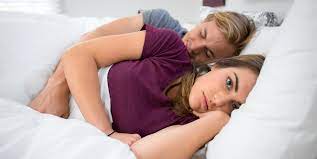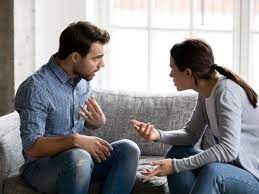
Low libido or low sexual desire is a common concern for many females. It can be caused by various factors including stress, hormonal imbalances, relationship issues, medication side effects, or other underlying health conditions.
Whatever the reason, low libido can impact the quality of life for women, leading to distress, anxiety, and feelings of inadequacy. Fortunately, there are ways to address this problem and enhance female sexual desire.
In this blog post, we will discuss some effective ways to treat low libido in females and improve overall sexual satisfaction.
What is low libido in females?
Low libido in females refers to a decreased or lack of interest in sexual activity. This can lead to a significant decrease in sexual desire, arousal, and pleasure. While it's normal for sexual desire to fluctuate throughout a person's life, a persistent low libido can be frustrating and have a negative impact on a person's self-esteem, relationships, and overall well-being.
Low libido can affect women of any age and can have many different causes, ranging from medical conditions to psychological issues to lifestyle factors. In some cases, low libido may be a temporary problem that resolves on its own, while in other cases, it may require treatment to address the underlying cause and improve sexual function.
Causes of low libido in females
There are many factors that can contribute to low libido in females. Some of the most common causes include:
1. Hormonal changes: Fluctuations in estrogen and progesterone levels can affect a woman's libido, especially during menopause, pregnancy, or while breastfeeding.
2. Psychological factors: Stress, anxiety, depression, and relationship problems can all have a negative impact on female libido.
3. Medical conditions: Certain medical conditions like thyroid problems, diabetes, and chronic pain can decrease a woman's sex drive.
4. Medications: Some medications, such as antidepressants and birth control pills, can cause low libido as a side effect.
5. Age: As women age, their bodies go through many changes, including a decrease in hormone levels, which can contribute to low libido.
6. Lack of sleep: Sleep deprivation can affect hormone levels and lead to decreased libido.
It's important to note that low libido is a complex issue and may have multiple underlying causes. If you are experiencing low libido, it's essential to speak with your healthcare provider to determine the underlying cause and the best treatment options for you.
Medical conditions associated with low libido
Low libido can be a symptom of various medical conditions in females. Some of the medical conditions associated with low libido are:
1. Hypothyroidism: Hypothyroidism is a condition in which the thyroid gland does not produce enough hormones. Low levels of thyroid hormones can lead to fatigue, depression, and a low sex drive.
2. Diabetes: Diabetes can affect the blood vessels and nerves that play a role in sexual arousal and can result in low libido.
3. Depression and Anxiety: Mental health disorders like depression and anxiety can affect libido. These conditions can cause fatigue, mood swings, and loss of interest in sex.
4. Menopause: Menopause is a natural process in which the body stops producing estrogen. The decreased levels of estrogen can cause a decrease in sexual desire.
5. Polycystic ovary syndrome (PCOS): PCOS is a hormonal disorder that can lead to irregular periods, acne, and excess hair growth. It can also cause low libido.
6. Endometriosis: Endometriosis is a condition in which the tissue lining the uterus grows outside the uterus. The pain associated with endometriosis can cause a decrease in libido.
7. Chronic Illnesses: Chronic illnesses such as cancer, heart disease, and multiple sclerosis can affect libido due to pain, fatigue, and other symptoms associated with these conditions.
It's important to talk to a healthcare provider if you are experiencing low libido as it may be a symptom of an underlying medical condition that needs to be addressed.
Lifestyle factors affecting female libido
The lifestyle choices we make can have a significant impact on our sex drive. Here are some common lifestyle factors that can affect female libido:
1. Stress: High levels of stress can cause fatigue, anxiety, and a decrease in sexual desire. Finding ways to manage stress, such as through exercise or relaxation techniques, can help improve libido.
2. Lack of sleep: Not getting enough sleep can cause a lack of energy and a decrease in sexual desire. Aim for 7-9 hours of sleep per night to improve libido.
3. Poor diet: Eating a diet high in processed foods, sugar, and saturated fat can lead to weight gain, hormonal imbalances, and a decrease in libido. Eating a healthy, balanced diet that includes fruits, vegetables, lean proteins, and whole grains can help improve libido.
4. Lack of exercise: Regular exercise can improve blood flow, boost mood, and increase energy levels, all of which can help improve libido.
5. Relationship issues: Relationship problems, such as communication issues, lack of intimacy, or infidelity, can cause a decrease in sexual desire. Working on improving communication and intimacy in a relationship can help improve libido.
By addressing these lifestyle factors, women may be able to improve their libido without medication or other medical interventions.
Treatment options for low libido in females
If you're struggling with low libido, there are several treatment options available. Some of these options involve medical treatments, while others involve lifestyle changes or natural remedies.
Here are a few of the most common options for treating low libido in females:
1. Hormone therapy: Hormone therapy involves taking estrogen or testosterone to boost libido levels. This is a common treatment option for women who are going through menopause or experiencing a decrease in hormone levels due to other medical conditions.
2. Prescription medications: Certain prescription medications, such as antidepressants and blood pressure medications, can affect libido levels. Your doctor may be able to switch you to a different medication that won't affect your libido as much.
3. Counseling: If your low libido is due to psychological factors, such as stress or anxiety, counseling can help. A therapist can help you work through any underlying issues and develop strategies for boosting your libido.
4. Sex therapy: Sex therapy is a specialized form of counseling that focuses specifically on sexual issues. A sex therapist can help you and your partner communicate better, explore new sexual techniques, and find ways to increase your libido.
5. Lifestyle changes: Simple lifestyle changes, such as getting more exercise, eating a healthy diet, and getting enough sleep, can help boost libido levels. You may also want to consider reducing your alcohol intake, quitting smoking, or trying relaxation techniques such as meditation or yoga.
6. Natural remedies: Certain herbs and supplements, such as maca root, ginkgo biloba, and ginseng, are believed to have libido-boosting properties. However, it's important to talk to your doctor before taking any herbal supplements, as they can interact with other medications or have other side effects.
Overall, there are several treatment options available for low libido in females. Talk to your doctor about your options and work together to find a treatment plan that works best for you.
Non-medical treatment options for low libido
There are various non-medical treatment options available to help women manage their low libido. These treatment options do not involve taking any medication, but rather involve making lifestyle changes and adopting healthy habits. Here are some non-medical treatment options that can help improve female libido:
1. Counseling or therapy: For many women, low libido can be the result of psychological issues such as stress, anxiety, or depression. Counseling or therapy can help women identify the underlying causes of their low libido and work on addressing these issues.
2. Exercise: Regular physical activity has been shown to increase libido in both men and women. Exercise can help improve blood flow and increase endorphins, which can boost sexual desire.
3. Sleep: Lack of sleep can lead to fatigue and decreased sex drive. Getting enough sleep can help improve overall energy levels and increase libido.
4. Diet: Eating a healthy diet rich in fruits, vegetables, whole grains, and lean protein can help improve overall health and energy levels, which can lead to increased libido.
5. Communication: Communication with your partner is key when it comes to managing low libido. Open and honest communication can help build intimacy and trust, which can ultimately lead to increased desire.
6. Sensual activities: Engaging in sensual activities such as massage, cuddling, or kissing can help improve intimacy and sexual desire.
Remember, there is no one-size-fits-all solution when it comes to treating low libido in females. It’s important to speak with a healthcare professional to identify the underlying cause of your low libido and work on a treatment plan that works for you.
Alternative medicine options for low libido in females
In addition to traditional medical treatments, there are also alternative medicine options for women experiencing low libido. These alternative treatments include the following:
1. Acupuncture: Acupuncture is a traditional Chinese medicine practice that involves inserting needles into certain points on the body. Acupuncture has been shown to help increase sexual desire in women by reducing stress and improving overall well-being.
2. Herbs and Supplements: Certain herbs and supplements may help increase libido in women. These include maca root, ginseng, and black cohosh. However, it is important to talk to your doctor before taking any supplements or herbs as they may interact with other medications you are taking.
3. Massage: Massage can be an effective way to increase libido in women by reducing stress and promoting relaxation. A full-body massage can help improve circulation and release endorphins, which can boost mood and sexual desire.
4. Yoga: Yoga is a popular practice that can help reduce stress and increase mindfulness. Certain poses, such as the Cobra pose, can help improve blood flow to the pelvic region, which can improve sexual function.
5. Aromatherapy: Certain essential oils, such as ylang-ylang and lavender, may help increase sexual desire in women by promoting relaxation and reducing stress. You can use these oils in a diffuser or add them to a warm bath.
It is important to note that alternative medicine options may not work for everyone, and it is important to talk to your doctor before trying any alternative treatments. They can help you determine the best course of action for your specific needs and provide guidance on how to safely incorporate these treatments into your healthcare plan.
Tips for improving female libido naturally
For women who prefer non-medical options to treat low libido, there are many natural methods to improve female libido. Here are some tips to help improve female libido naturally:
1. Exercise regularly: Regular exercise can increase blood flow to the genital area, boost confidence, and decrease stress levels. This can lead to improved sexual function and desire.
2. Practice stress-reduction techniques: Stress can lower libido. Relaxation techniques such as yoga, meditation, deep breathing, or taking a warm bath can help reduce stress levels and improve libido.
3. Improve communication: It is important to communicate openly with your partner about your needs and desires to ensure that both parties are satisfied.
4. Incorporate aphrodisiacs: Certain foods have aphrodisiac qualities, including oysters, chocolate, strawberries, and red wine. Including these foods in your diet may increase sexual desire.
5. Try natural supplements: Some herbs, vitamins, and minerals are thought to enhance libido in women. Examples include ginkgo biloba, maca, ginseng, and zinc.
6. Experiment with different sexual positions: Changing up sexual positions may help improve sexual desire and satisfaction.
7. Practice self-care: Taking care of oneself can improve self-esteem, which can lead to improved sexual desire. Activities such as getting a massage, taking a warm bath, or reading a book can help improve overall well-being.
8. Get enough sleep: Lack of sleep can lead to fatigue, which can decrease libido. Aim for 7-8 hours of sleep per night to feel well-rested and energized.
Improving female libido naturally takes time and patience. However, incorporating these tips can help enhance libido, increase overall satisfaction, and lead to a more fulfilling sex life.




















